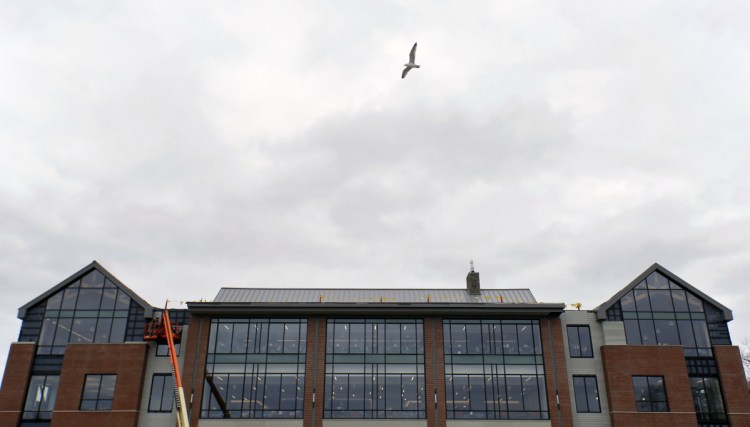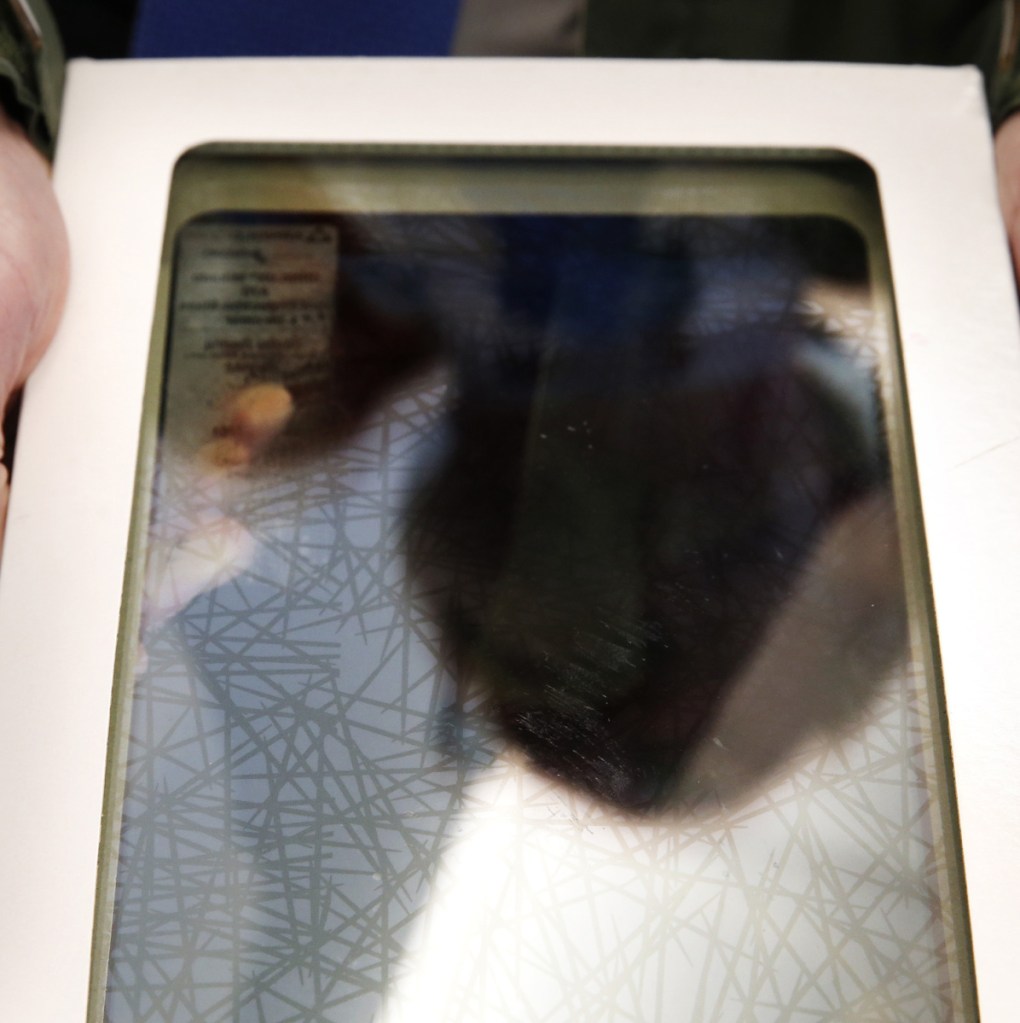BIDDEFORD — Adrienne Bowie graduated from the University of New England in December with a degree in animal behavior. But perhaps her greatest achievement at the school was a petition she started to help migrating birds.
In September 2016, Bowie sent a petition with 1,300 student signatures to then UNE President Danielle Ripich. The petitioners asked Ripich to modify construction plans for the school’s new student center by adding bird-protection windows at a cost of $200,000.
Ripich decided the following March that the university should add the windows to a building already outfitted with several green and sustainable features. Bird-proof glass is not only a first for the university, but likely for any building in Maine.
On Friday, a grand opening was held for the 60,000-square-foot, three-floor student center, named the Danielle N. Ripich Commons.
The student center is just a few hundred feet away from the Saco River, an important flyway for migrating songbirds returning from South America to breed in Maine, said Noah Perlut, a UNE professor of avian ecology.
“The birds migrating here may only be here on campus a few hours,” Perlut said. “But they are here to fatten up for their journey. These are their breeding grounds.”
The floor-to-ceiling glass windows on the building’s north side, along with glass in the tunnel that connects the student center to the library, are bird-proof. When viewed from about 12 inches or closer, the glass shows tiny lines like spider webs – lines that can be seen by birds at a far greater distance. The windows are manufactured by Arnold Glas, a company headquartered in Germany and with a presence in Boston.
Collisions with windows are the second-leading cause of bird mortality in the United States, according to the Cornell Lab of Ornithology, accounting for an estimated 599 million bird deaths annually.

The decision to include bird-proof glass in the new student center at the University of New England began when graduate Adrienne Bowie started a petition to help migrating birds. The petition was signed by 1,300 students and convinced then-president Danielle Ripich to modify construction plans.
Christine Sheppard, the director of the glass-collisions program at the American Bird Conservation in New York, said more colleges across the country – including Vassar College, the University of Utah, Columbia University and the University of Massachusetts – are adding bird-friendly glass. She knows of no other buildings in Maine that use them.
“This is very exciting. Obviously, there are a lot of birds, both resident and migrants, that travel through Maine,” Sheppard said. “There is tremendous activity at academic institutions in retrofitting and in new construction for bird-proof design. Universities are really at the forefront of the commitment to sustainability.”
UNE has seen its resident student body explode from about 400 to 1,450 in the past decade. Alan Thibeault, the school’s assistant vice president of planning, said the expansive bird-safe windows are a talking-point on campus for tours and student recruitment.
“We wanted to walk the walk. We wanted to do what we’re teaching,” Thibeault said. “On tours we do, students talk about why we did this.”
Kylie Denny, a UNE senior from Iowa, said when she saw Bowie’s petition, she thought saving birds on an important flyway was critical.
“I think UNE did the right thing,” Denny said. “There were a lot of signatures. I think a lot of people would have been disappointed if they hadn’t put the bird-proof glass in.”
Victoria Sanchez, a senior from Maryland who is majoring in environmental science, said without the bird-safe glass there would be dead birds on the campus grounds, creating an eye sore.
“A lot of birds fly through here to fatten up. They’re on their migration journey, so if we can decrease deaths we can increase the number of birds here,” Sanchez said.
Bowie, who is now an intern at a wildlife rehabilitation center in York, hopes the new building will spark change across Maine.
“When I researched it, I wasn’t finding other places in Maine,” Bowie said. “And I thought it was a really rare opportunity to be an inspiration for other universities and other businesses. Hopefully, It will become more normal to consider birds when implementing building designs. I think it will have a snowball effect.”
Deirdre Fleming can be reached at 791-6452 or:
dfleming@pressherald.com
Twitter: FlemingPph
Send questions/comments to the editors.




